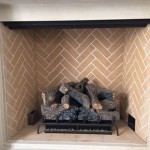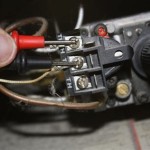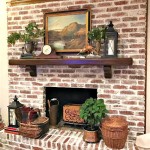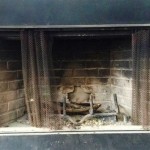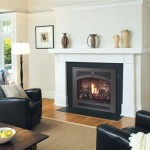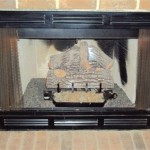Bricks for Fireplace: A Comprehensive Guide
Fireplaces, whether traditional or modern, have long been a cherished feature in homes, offering warmth, ambiance, and a focal point for gathering. The heart of any fireplace is the brickwork, which plays a crucial role in both its functionality and aesthetic appeal. Selecting the right bricks for your fireplace is an important decision, considering factors such as style, durability, heat resistance, and maintenance. This article explores the various types of bricks commonly used for fireplace construction, their properties, and considerations for choosing the best option for your needs.
Types of Bricks for Fireplaces
Fireplace bricks are typically made from either clay or concrete, each offering distinct properties and advantages.
Fireclay Bricks
Fireclay bricks, manufactured from high-quality clay, are specifically designed for use in high-heat environments like fireplaces and ovens. They possess exceptional heat resistance, durability, and resistance to thermal shock. Fireclay bricks come in a wide range of colors, textures, and finishes, allowing for diverse design possibilities.
Concrete Bricks
Concrete bricks, made from a mixture of cement, aggregates, and water, are often a more affordable option compared to fireclay bricks. They offer good strength and durability, but their heat resistance and thermal shock resistance may be lower. Concrete bricks are typically available in a limited range of colors and textures.
Key Considerations for Choosing Fireplace Bricks
When selecting bricks for your fireplace, several factors should be considered, ensuring that your choice aligns with your specific needs and preferences.
Heat Resistance
Fireplaces generate significant heat, making heat resistance a crucial factor in brick selection. Fireclay bricks, specifically designed for high-temperature applications, excel in this regard. Concrete bricks, although durable, may require additional measures to mitigate heat damage.
Durability and Strength
Fireplaces experience constant thermal expansion and contraction, which can potentially cause cracking or damage. Brick durability is therefore crucial for ensuring long-term performance. Fireclay bricks, due to their high-temperature firing process, offer exceptional durability and resistance to cracking. Concrete bricks can also be durable but are less resistant to thermal shock.
Aesthetics and Style
A fireplace is a prominent feature in a home, contributing significantly to its aesthetic appeal. Fireplace bricks are available in a wide array of colors, textures, and finishes, allowing for customization to match a home's overall design. Fireclay bricks offer a broader range of options in terms of colors, textures, and finishes. Concrete bricks, while offering a limited selection, can still provide a clean and modern aesthetic.
Maintenance
Different brick types require varying levels of maintenance. Fireclay bricks are generally low-maintenance, requiring minimal cleaning and upkeep. Concrete bricks may require periodic sealing or cleaning to maintain their appearance and protect against moisture penetration.
Additional Considerations
Beyond the basic brick properties, certain additional aspects might influence your decision.
Mortar
The mortar used to bind the bricks also plays a crucial role in the fireplace's performance and longevity. Refractory mortar, specifically designed for high-temperature applications, is recommended for fireplaces. It offers excellent heat resistance, flexibility, and durability.
Firebox Liner
A firebox liner, often made from refractory materials like firebrick, is installed within the fireplace to protect the surrounding structure from excessive heat. This liner is crucial for safety and longevity.
Professional Installation
Building a fireplace is a complex task that requires specialized skills and knowledge. It is highly recommended to hire a qualified and experienced mason or fireplace contractor to ensure proper construction and safety.
By carefully considering the above factors, you can make an informed decision about the bricks for your fireplace, ensuring a beautiful, functional, and durable feature in your home.

Mortar Wash Brick Fireplace Makeover Dimples And Tangles

Building An Electric Fireplace With Brick Facade

5 Fireplaces You Ll Want To Curl Up In Front Of Midland Brick

Brick Tiling Your Fireplace Slips

30 Gorgeous Painted Brick Fireplace Ideas

Brick Slips For Fireplace Transformation Easy Diy

42 Painted Brick Fireplace Gorgeous Color

How To Build A Fireplace With Stones And Bricks Smartseal

How To Paint A Brick Fireplace Beamin Moore

How To Whitewash Brick Sand And Sisal
Related Posts



